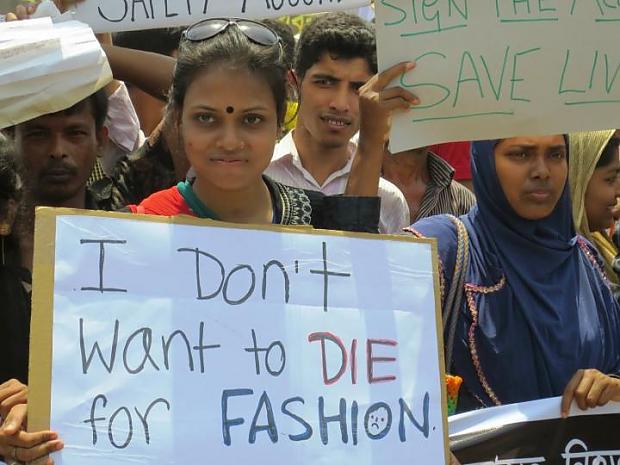A binding human rights treaty
A binding human rights treaty

It has been known for some time that expected profits and economic growth figures are not the only way to happiness for all. Next week we will have the chance to make progress towards a UN treaty which will make it obligatory for corporations to respect human rights. As things stand European governments do not seem inclined to play a glittering role in this. That’s a pity, because a great deal is at stake.
By Anne-Marie Mineur
 Four years ago appalling pictures from Rana Plaza were beamed into all of our living rooms across Europe. Some 1,100 people lost their lives as a result of the collapse of a garment factory in Bangladesh, a factory whose clothing products can be found for sale in every store in major shopping streets such as Amsterdam’s Kalverstraat. The terrible disaster fixed attention on a question which had already been debated for many years: to what extent are multinationals to be held responsible for violations of labour rights, human rights or the environment in either their own factories or those of their suppliers?
Four years ago appalling pictures from Rana Plaza were beamed into all of our living rooms across Europe. Some 1,100 people lost their lives as a result of the collapse of a garment factory in Bangladesh, a factory whose clothing products can be found for sale in every store in major shopping streets such as Amsterdam’s Kalverstraat. The terrible disaster fixed attention on a question which had already been debated for many years: to what extent are multinationals to be held responsible for violations of labour rights, human rights or the environment in either their own factories or those of their suppliers?
The events in Bangladesh were unfortunately certainly not exceptional. Another well-known example is the serious environmental damage which Shell has caused in Nigeria through leaks from oil pipes. The consequences for the immediate environment and for the health of local people have been enormous, but winning any kind of compensation through the courts is an extremely cumbersome process. The court cases related to this are still continuing.
In recent decades multinationals have been moving production en masse, principally to places where costs are lowest, because for example wages are low and laws designed to protect the environment are either non-existent or scarcely present. Under the neoliberal paradigm of “more trade leads to more production, more employment and more prosperity”, business has had free rein. Yet there has to date been no question of introducing binding international treaties to protect people and the environment.
That was, moreover, not for want of trying. The most well-known attempts are the Guiding Principles on Business and Human Rights adopted by the United Nations in 2011, which came to fruition under the leadership of Harvard professor John Ruggie. There was, however, insufficient support to make the rules binding, but what is now known as the U.N. Protect, Respect and Remedy Framework and Guiding Principles did at least put into words what the responsibilities of multinational corporations should consist of. The framework is a major step forward. It has as yet, however, not managed to prevent such things as Rana Plaza.
In 2014, Ecuador and South Africa took the initiative and proposed a binding treaty that would make it obligatory for corporations to do all that they could to prevent human rights abuses in their production processes. Two years on, and discussions will be held concerning the text of such a treaty, which will have to implement John Ruggie’s three principles: governments must defend human rights; corporations must respect these rights; and citizens must be able to assert their rights.
In its free trade treaties the European Commission does not want to adopt binding agreements to guarantee human rights. Despite this, the Commission never ceases to bang on about how human rights are at the heart of European values. So nothing is more obvious than the fact that, at the UN in Geneva, the Commission has left its previously passive attitude behind, as the European Parliament has so often pressured it to do. Next week is a decisive moment, one which offers the chance to bring justice to those who are paying the price for globalised world trade. In this, the European Commission and the member states must be at the forefront.
This article first appeared in the national daily newspaper the Netherlands Dagblad
- See also:
- World
